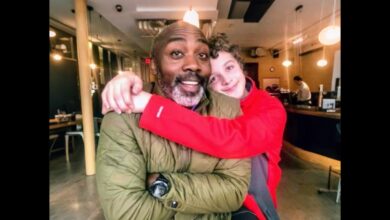
When Fine Means Growth: Learning to Trust Your Teen’s Silence
It’s Thursday night, and my seventeen-year-old son has been in his room for three hours. The door is closed—not slammed, not locked, just quietly, definitively closed. Earlier, when I asked about his day, he gave me the standard teenage response: “Fine.”
This is the child who used to narrate his entire day to me during the car ride home from elementary school. Who would sprawl across my bed while I folded laundry, telling me about playground drama and lunch trades and which kids got in trouble for talking. Who once cried because he forgot to tell me that his friend Jacob had brought a hamster to show-and-tell.
Now I get “fine” and “okay” and the sound of his bedroom door closing.
I know this is normal. I know this is healthy development. I know that teenagers are supposed to separate, to process their experiences internally before sharing them externally—if they share them at all. My rational mind understands that his withdrawal isn’t rejection; it’s growth.
But my mother’s heart doesn’t always listen to my rational mind.
Last week, I overheard him on a phone call with a friend, and for twenty minutes I heard the animated, engaged version of my son that I rarely see anymore. He was funny, thoughtful, upset about something that had happened at lunch, excited about weekend plans I knew nothing about. I stood outside his door like a spy in my own house, grateful for these stolen glimpses into his real life.
When he came downstairs later, I casually asked, “How was lunch today?” hoping to open a door to the conversation I’d accidentally overheard.
“Fine,” he said, grabbing a snack and disappearing again.
The worry isn’t logical. He’s a good kid—responsible, kind, making decent choices as far as I can tell. His grades are solid. He has friends. He shows up for family dinners and manages his chores without too much nagging. By all external measures, he’s thriving.
But I can’t shake the feeling that I’m missing something important. That behind that closed door, he’s navigating challenges I should know about, processing experiences I could help him with, struggling with decisions where my perspective might matter.
A friend recently reminded me that her daughter, now in college, recently told her about struggles from high school that she never knew about. “She handled them just fine,” My friend said. “Better than fine, actually. She grew from figuring things out on her own.”
What if he needs me and doesn’t know how to ask?
Yesterday, I knocked on his door and asked if he wanted to grab ice cream, just the two of us. He looked surprised but said yes. During our fifteen-minute drive and awkward ordering process, I learned exactly three things: he’s nervous about taking the SAT, his friend Mason got his license, and he thinks our neighbor’s new dog is “pretty cool.”
Not exactly the deep conversation I was hoping for, but something. A small window into his world that felt precious precisely because it was so rare.
I’m learning to read new signs. The way he lingers in the kitchen when I’m cooking dinner, not talking but not leaving either. How he still says goodnight before going upstairs, even on his most withdrawn days. The fact that he asked for my opinion about which classes to take next year, then actually listened to my answer.
These crumbs of connection have to be enough right now. This is what loving a teenager looks like—holding space for their independence while staying available for the moments when they do want to share. Learning to trust that the foundation we built during all those years of bedtime stories and car ride conversations is still there, even when I can’t see it.
Tonight, as I write this, I can hear his music playing softly through the walls. Not the angry, aggressive stuff that worried me last year, but something mellow and contemplative. It’s a small comfort, this evidence that he’s still there, still processing his day in whatever way he needs to.
Maybe the closed door isn’t about shutting me out. Maybe it’s about having a safe space to figure out who he’s becoming. Maybe my job now isn’t to know everything about his day, but to be the person he knows he can talk to when he’s ready.
Maybe “fine” is sometimes actually fine.




